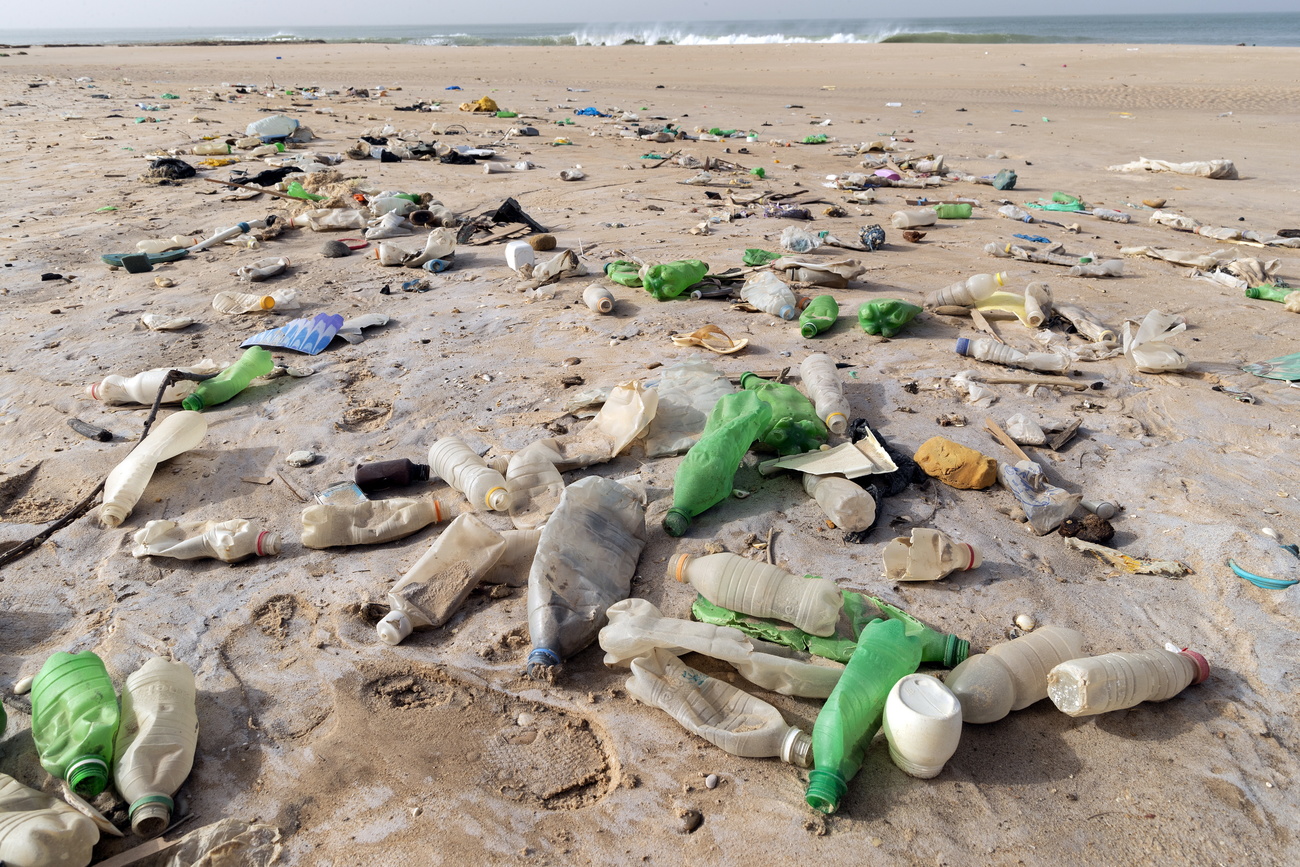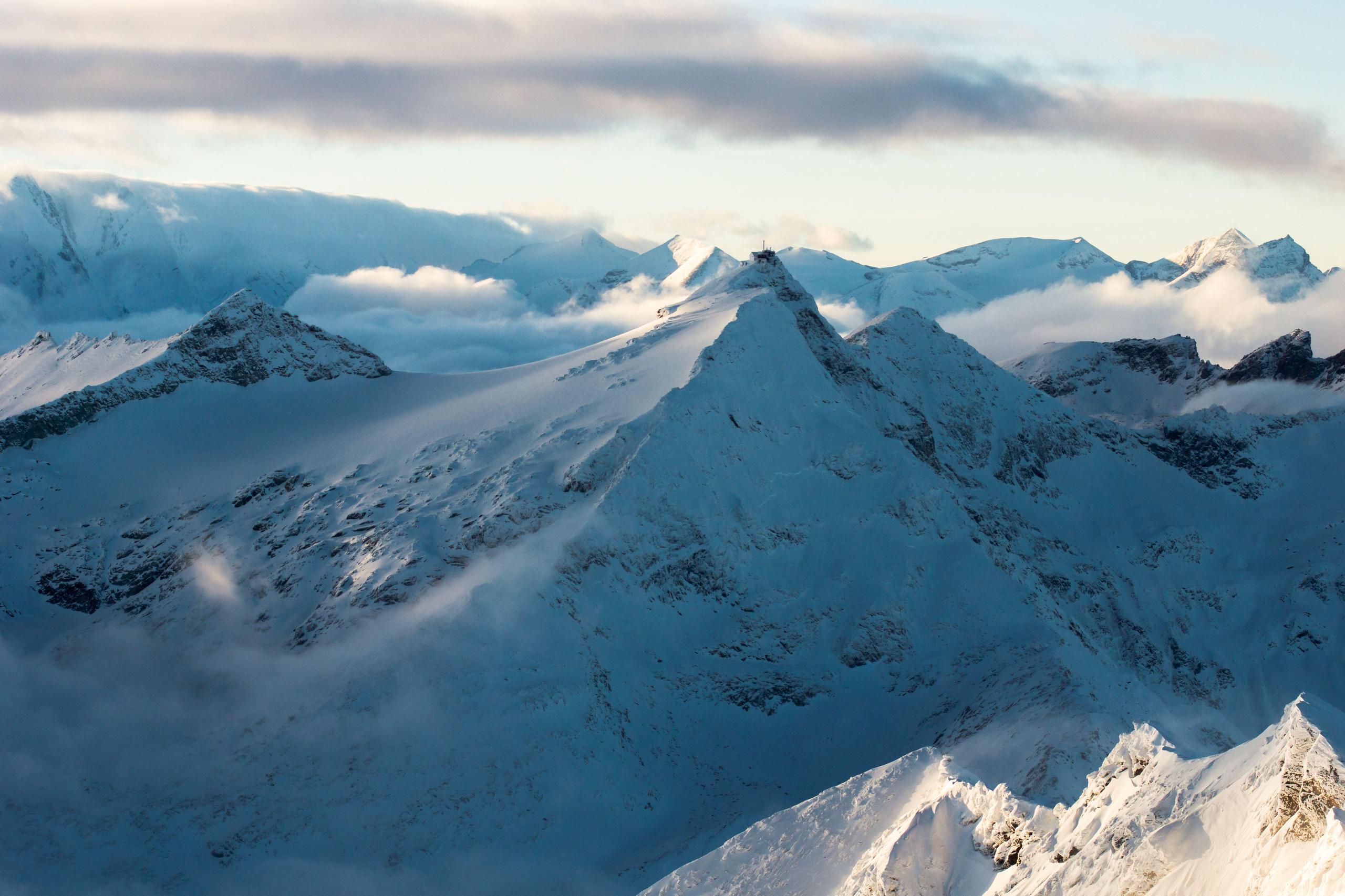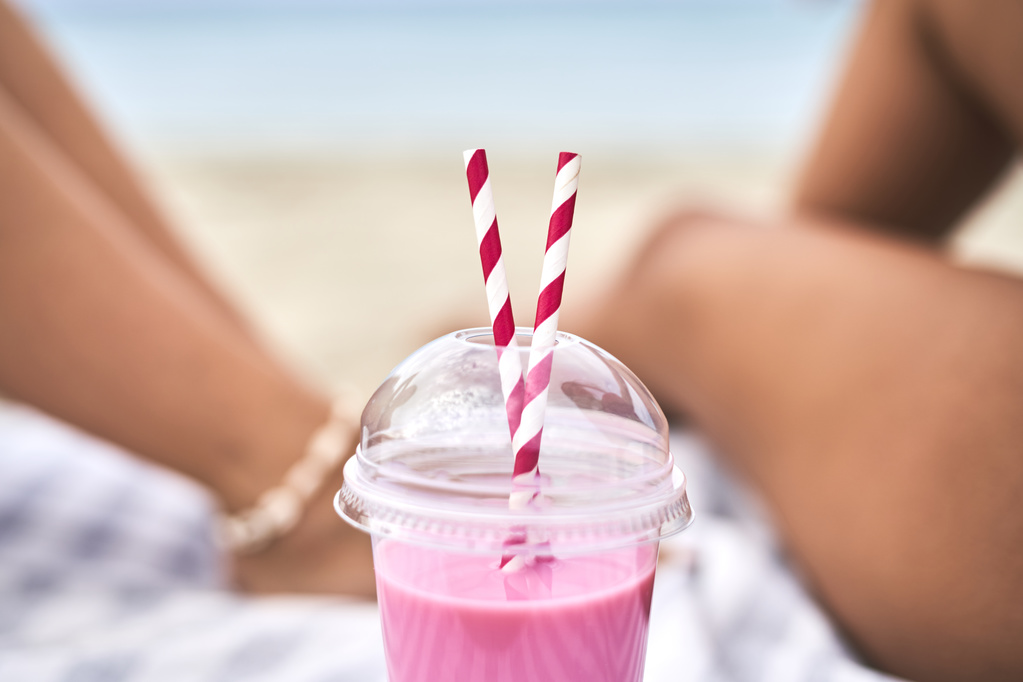
Switzerland has plastic problem, say most Swiss

Three-quarters of Swiss believe their country has a plastic problem, with a quarter seeing the problem as “massive”. They are particularly concerned about plastic pollution in the oceans and on beaches.
This is the result of a surveyExternal link published on Monday by OceanCare, a Swiss-based marine conservation NGO. It found that the Swiss see the biggest problem with plastic packaging. Double packaging in particular is considered unnecessary (according to 34% of respondents), and in general there is “too much packaging” (30%).
The survey also showed that the issue of plastic is of particular concern to the older generation, unlike most public climate debates, which are strongly driven by younger people.
“Plastic pollution is increasingly affecting life in Switzerland. Microplastics are already found in large quantities in the snow in the Alps, in our soils and water,” says Fabienne McLellan, managing director and lead of the plastics programme at OceanCare.

More
Nanoplastics travel long distances to the Alps
The Swiss are particularly concerned about plastic waste in the oceans and on beaches. Normally in surveys “the closer the problem, the greater the concern”, the study authors wrote. However, the opposite is true when it comes to plastic: 73% of the Swiss perceive plastic in the sea and on beaches as more problematic than plastic in Swiss nature. “This awareness of the problem cuts across all political camps from left to right and cannot be dismissed as a classic ‘eco-issue’,” they said.
Plastic pollution of Swiss nature worries only half of those surveyed (54%), and plastic in local drinking water even fewer people (43%). “Interestingly, people living in the countryside, who are in more direct contact with nature, rate these issues very similarly to urban residents,” the study said.

More
Swiss to keep sipping from single-use plastics as EU ban takes effect
Stringent measures needed
More than half of the Swiss would like to see tough measures and interventions by law “to ban microplastics from consumer goods, to curb plastic production in general and to sensibly reduce the consumption of single-use plastic”.
According to Oceancare, around nine million tonnes of plastic end up in the world’s oceans every year – around 17,600 tonnes in the Mediterranean alone.
The survey was part of a large-scale initiative by OceanCare to reduce plastic in Switzerland. The study, conducted by gfs.bern surveyed 1,013 Swiss residents, proportioned according to age, gender and language region. The representative survey took place between June 20 and July 3, 2022.

More
Why don’t the Swiss recycle more plastic?
More

In compliance with the JTI standards
More: SWI swissinfo.ch certified by the Journalism Trust Initiative




























You can find an overview of ongoing debates with our journalists here . Please join us!
If you want to start a conversation about a topic raised in this article or want to report factual errors, email us at english@swissinfo.ch.